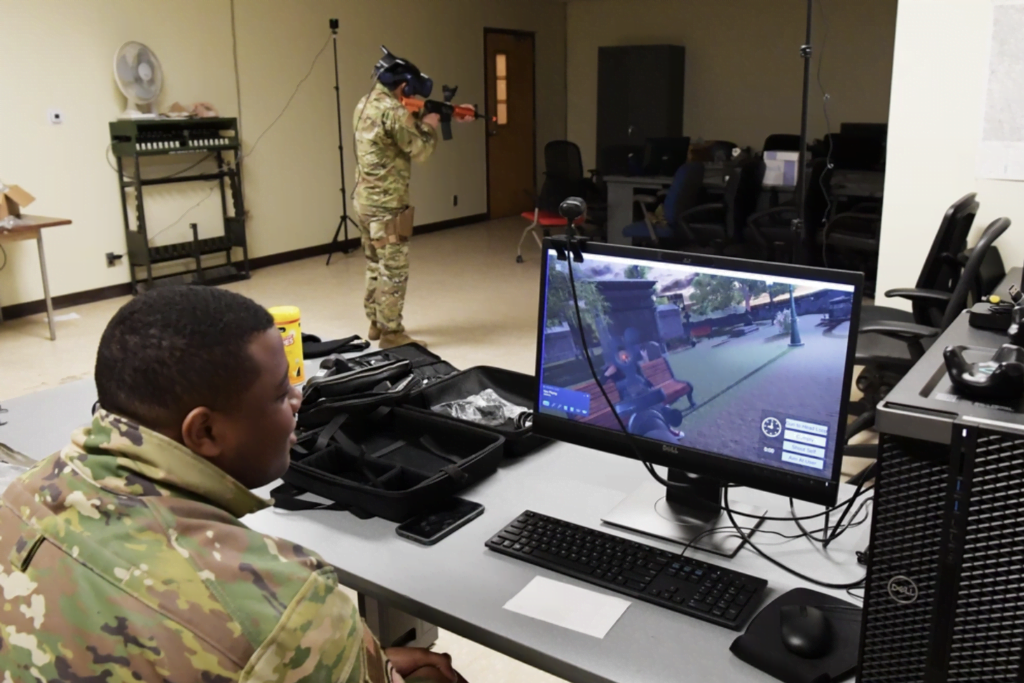Metaverse-based platforms have been used for training for quite some time. With Project Tripoli, training has never looked just so realistic.
You read the news. So you know that there’s no shortage of people celebrating the “downfall of Metaverse,” explaining how instead of booming, the industry will crash and burn in 2023.
Should you argue with them? No, you can let them talk.
Admittedly, some Metaverse-related projects didn’t pan out as expected. But here’s the thing: others did better than expected. There’s Project Tripoli, for example. A highly-ambitious US Marines Corps training program, which has been going strong for quite a while.
What’s Project Tripoli All About
For decades, training in realistic conditions without endangering your personnel was a big problem for the US Marines. While the Navy has had flight simulators for years, the Corps had to send its soldier to the field with live ammunition.
Between 2006 and 2020, thousands of soldiers were killed in training accidents. Project Tripoli is the Corps’ move to change that, using a Metaverse platform for training.
As the National Defense Magazine reports, Project Tripoli offers combat simulation of the highest fidelity, focusing on scenarios such as urban combat and combined arms operations.
With the use of VR, AR, and AI, the platform gives the marines an environment to practice in that is as close to reality as possible.

Has Project Tripoli Been Successful?
The program is revolutionary for many reasons. Instead of having the soldiers sit down and watch a Powerpoint presentation, they can practice in an environment as close to the real one as possible.
The training simulation connects live training with augmented reality. It also integrates weapons, communication and situational awareness into the exercise. Soldiers can coordinate actions and capture objectives in a realistic environment.
So far, trainees have been relaxed during simulations, which allowed them to focus on the mission. They also reported an increased sense of presence and immersion.
Other Countries are Trying to Catch Up
The United States Marine Corps program is one of the world’s most successful, highly decorated, and well-respected military training programs. When they talk, people listen. And when they act, people imitate.
The news of launching a Metaverse-based training program managed to turn some heads. In Asia, countries like India and China have been training their special forces in Metaverse.
Some countries have been developing simulators of their own, but a majority have been working with 3rd-party companies. Naviworks, for instance, has been the main simulation supplier for South Korean defense.
Of course, most of these providers are pretty expensive. That left a gap in the market for companies like Digimation to offer more affordable technologies. The company has developed the DART program, which police departments use to train rookies and veterans alike.
Challenges of Military Training in Metaverse
So far, Project Tripoli has been successful; however, it’s important to keep in mind that police, military, and other law enforcement agencies have their own challenges when it comes to Metaverse training.
We’ve already mentioned that this technology certainly isn’t cheap. Allocating a large chunk of the budget to a Metaverse won’t be easy for many departments and agencies.
Another big issue is a lack of personnel that knows how to operate the technology. That requires hiring consultants, which adds another layer of complexity to the equation.
Finally, there’s the fact that we have no experience with prolonged virtual training. How does it affect personnel? Will there be any physical repercussions from prolonged use of the simulator? That’s something that still needs to be addressed.
In Conclusion
Although there are some concerns about Metaverse training, several nations have already invested a lot of money in emerging technology.
The US Marine Corps has introduced Project Tripoli to reduce casualties and increase operational efficiency. And other countries have adopted similar technologies as well.
Author

Keen blogger with a zest for Web3, delving into the symbiotic narrative of NFTs and decentralized frameworks.




